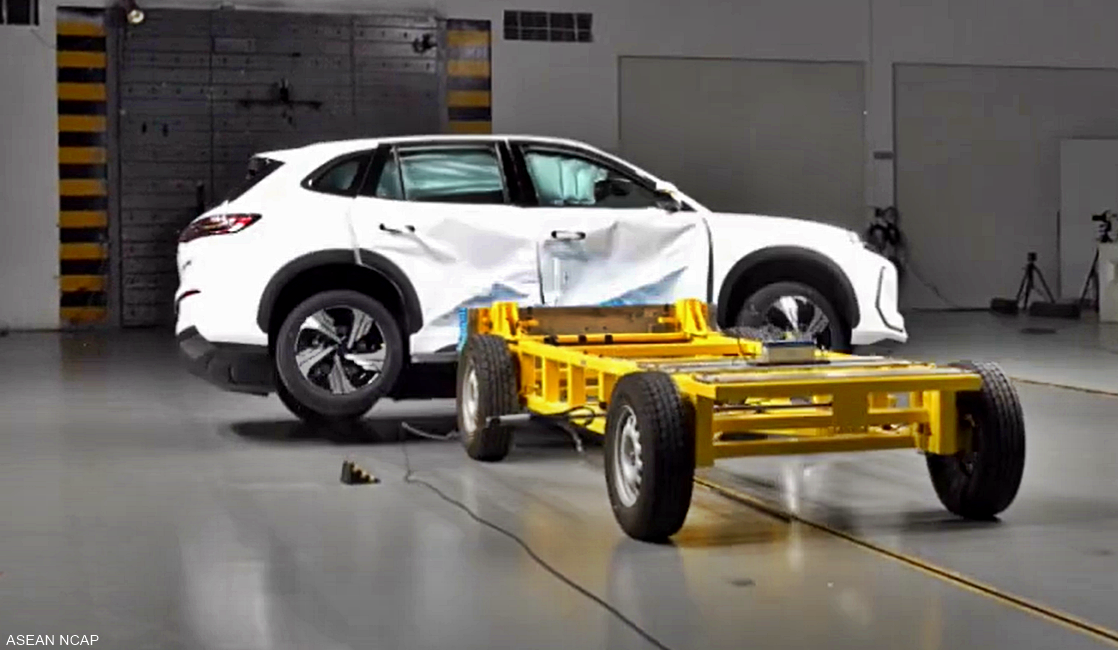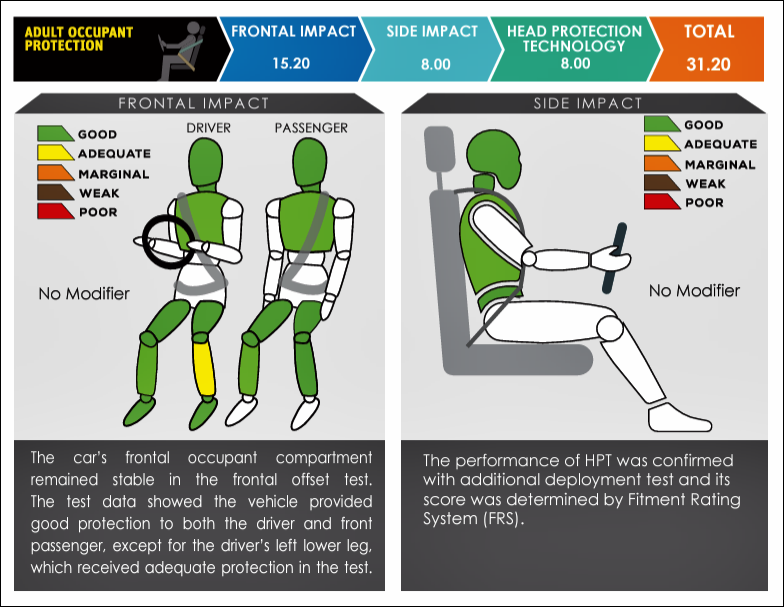Coinciding with the launch of the Proton e.MAS 7, the Malaysian automaker’s first production EV, ASEAN NCAP (the New Car Assessment Program for Southeast Asian Countries) also announced its safety rating for the model. The e.MAS 7 received the maximum of 5 stars with a total score of 92.57 points.
“ASEAN NCAP is pleased that the new e.MAS 7 has made a fitting achievement in the ASEAN NCAP assessment with the various technologies that it offers in the model, both passive and active safety. With the rising trend among vehicle consumers who currently have a keen interest towards EVs, PROTON has ensured that safety is not to be compromised such as having a strong structure to protect the occupants and acceptable safety restraint system. Furthermore, ASEAN NCAP is indeed proud that PROTON has equipped its model with active safety technologies as a standard fitment across all its variants,” the organisation under MIROS (Malaysian Institute of Road Safety Research) said.

Commending Proton on the achievement, ASEAN NCAP added that it hopes ‘this remarkable feat of raising the safety of vehicles in the ASEAN region is continuing to set a standard for others to follow’.
The first fully electric vehicle with a Proton badge achieved 39.00 points for the Adult Occupant Protection (AOP), 17.32 points in Child Occupant Protection (COP), 20.00 points in Safety Assist (SA) category and 16.25 points in Motorcyclist Safety (MS).
The results are primarily for public information, ie for consumers to be aware of the quality of safety protection offered by the vehicle based on the NCAP assessment. As ASEAN NCAP has moved to a single rating scheme, consumers can simply refer to the safety star rating which comprises the accumulated score based on the 4 main assessment pillars under the new protocol for 2021-2025 which are AOP, COP, SAT, and MS (each contributing 20.00 points of the overall score).
Click here to read full report
In the passive safety tests where the vehicle was crashed or impacted on the side, it showed provided overall good protection for the front occupants, based on the data acquired by the test dummies. It was noted that both lower legs of the driver received adequate protection, an important point in severe frontal collisions.

Additionally, the SUV performed well in both the COP and MS assessments, with the model scoring high points in the majority of the items that were being assessed. The new EV offers standard equipment for all the active safety features that ASEAN NCAP assesses in all the countries that it is being marketed, making it the highest scoring model for the SA category in ASEAN NCAP.
The testing was conducted at the China Automotive Engineering Research Institute (CAERI), a state-owned research institute in China established in 1965. As the e.MAS 7 is currently made in China at a Geely factory, it was probably easier to conduct the test at the facility of ASEAN NCAP’s affiliate, with personnel from Malaysia observing and collecting the data for assessment.
As the model is a co-development with Geely, the same results could also apply to Geely’s models sold in other markets. “It is possible for Proton to share the same rating with Geely for its EX5 model. Nevertheless, ASEAN NCAP requires submission and declaration of the models’ safety specifications by Geely and Proton before any decision can be made,” the organisation told MotaAuto.com.
Click here to visit ASEAN NCAP to find out about the safety ratings of models sold in ASEAN.
![Proton e.MAS 7 EV ASEAN NCAP [2024]](https://www.motaauto.com/wp-content/uploads/2024/12/Proton-e.MAS-7-EV-ASEAN-NCAP-2024-696x442.png)
